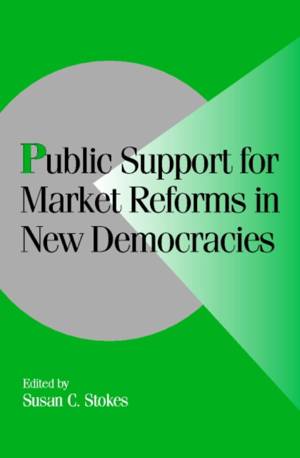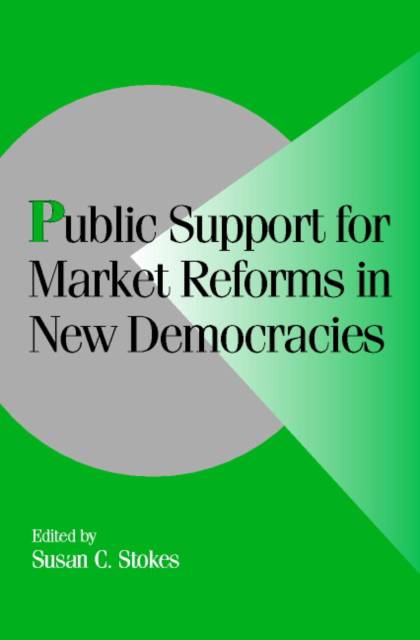
- Afhalen na 1 uur in een winkel met voorraad
- Gratis thuislevering in België vanaf € 30
- Ruim aanbod met 7 miljoen producten
- Afhalen na 1 uur in een winkel met voorraad
- Gratis thuislevering in België vanaf € 30
- Ruim aanbod met 7 miljoen producten
Zoeken
Public Support for Market Reforms in New Democracies
€ 47,95
+ 95 punten
Omschrijving
Do people in new democracies that are undergoing market reforms turn against these reforms when the economic adjustment is painful? The conventional wisdom is that they will. According to "economic voting" models, citizens punish elected governments for bad economic performance. The contributors to this collection, in contrast, begin with the insight that citizens in new democracies may have good reasons to depart from the predictions of economic voting. They use state-of-the-art statistical techniques to analyze changes in aggregate support levels, as reflected in public opinion polls, in response to changes in inflation, unemployment, production, and wages. They find that public opinion of reforms does not always conform to the expectations of the economic voting model.
Specificaties
Betrokkenen
- Uitgeverij:
Inhoud
- Aantal bladzijden:
- 232
- Taal:
- Engels
- Reeks:
Eigenschappen
- Productcode (EAN):
- 9780521663410
- Verschijningsdatum:
- 17/09/2001
- Uitvoering:
- Paperback
- Formaat:
- Trade paperback (VS)
- Afmetingen:
- 154 mm x 230 mm
- Gewicht:
- 317 g

Alleen bij Standaard Boekhandel
+ 95 punten op je klantenkaart van Standaard Boekhandel
Beoordelingen
We publiceren alleen reviews die voldoen aan de voorwaarden voor reviews. Bekijk onze voorwaarden voor reviews.










